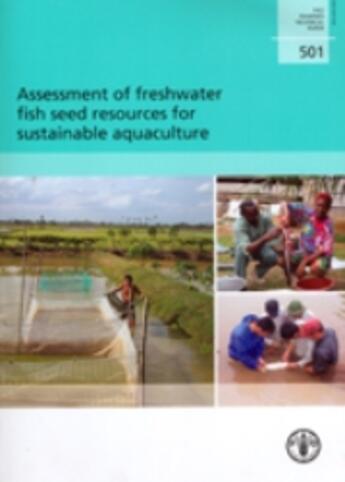Merci à toutes et à tous pour cette aventure collective
Passionné(e) de lecture ? Inscrivez-vous
gratuitement ou connectez-vous pour rejoindre la
communauté et bénéficier de toutes les fonctionnalités du site !

Four of the most important resources to aquaculture, outside human and technological resources, are land, water, seed and feed. Efficient use of these resources are necessary to guarantee optimum production from aquaculture. A project Study and Analysis of Seed Production in Small-scale Rural Aquaculture was implemented through a desk study and expert workshop (held in Wuxi, China from 23-26 March 2006) to assess the status of freshwater fish seed resources and supply and its contribution to sustainable aquatic production. This publication is presented in two parts. Part 1 contains the proceedings and major recommendations of the expert workshop which tackled three major themes: (a) seed quality, genetics, technology and certification, (b) seed networking, distribution, entrepreneurship and certification and (c) how rural fish farmers can benefit from the freshwater aquaseed sector. Part 2 contains the detailed outcomes of the desk study consisting of three regional syntheses (Africa, Asia and Latin America) based on 21 country case studies, five thematic reviews (quality, genetics and breeding, seed networks and entrepreneurship, seed supply in rural aquaculture, farmer innovations and women involvement) and three invited papers (self-recruiting species, decentralized seed networking in Bangladesh and establishment of national broodstock centres in Viet Nam).
Il n'y a pas encore de discussion sur ce livre
Soyez le premier à en lancer une !

Merci à toutes et à tous pour cette aventure collective

Lara entame un stage en psychiatrie d’addictologie, en vue d’ouvrir ensuite une structure d’accueil pour jeunes en situation d’addiction au numérique...

Un douloureux passage à l'âge adulte, entre sensibilité et horreur...

Blanche vient de perdre son mari, Pierre, son autre elle-même. Un jour, elle rencontre Jules, un vieil homme amoureux des fleurs...